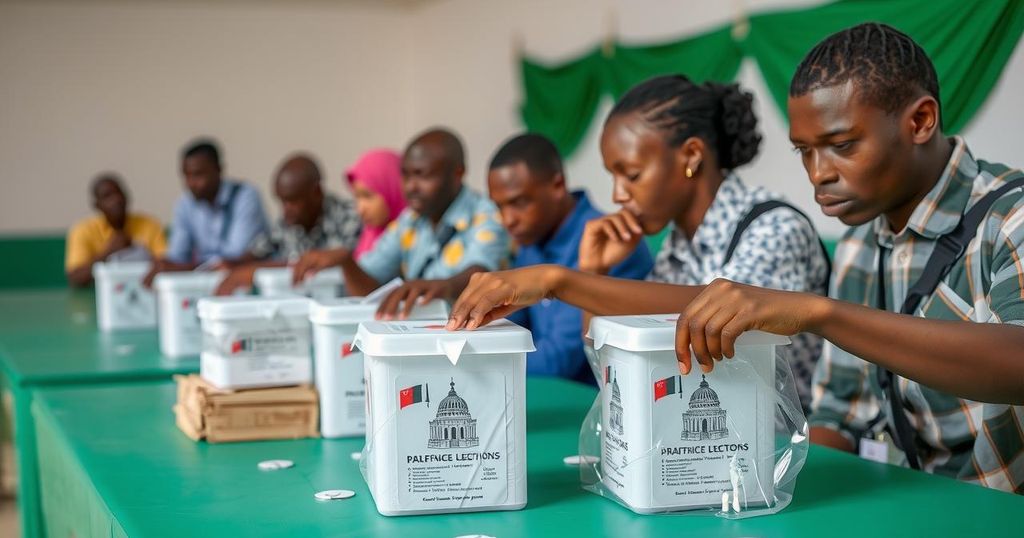World news
ABDALLAH SAMBI, AFRICA, AUSTRALIAN ASSOCIATED PRESS, AZALI ASSOUMANI, COMOROS, ELECTION FRAUD, GOVERNANCE, GOVERNMENT, HAMIDOU KARIHILA, HOPE OF THE COMOROS, INDIAN OCEAN, INDIAN OCEAN ARCHIPELAGO, JUWA, NO, NOUR EL - FATH, OPPOSITION, POLITICS, PRESIDENTIAL ELECTION, REUTERS, SUPREME COURT
Marcus Chen
0 Comments
Comoros Elects New Parliament Amid Political Tension and Allegations of Fraud
Voters in Comoros are electing representatives for the 33-seat parliament amid claims of irregularities in previous elections. President Azali Assoumani’s rule faces criticism for authoritarian practices, and while some opposition parties call for a boycott, others are actively participating to expose systemic flaws. Results are expected by Friday.
The citizens of Comoros are participating in parliamentary elections to select representatives for the archipelago’s 33-seat parliament. This election occurs amid contentious political climate following the 2022 re-election of President Azali Assoumani, which opposition parties claim was tainted by significant irregularities. Despite the allegations, officials from the ruling party assert the integrity of the electoral process. Approximately 338,000 registered voters are expected to cast their ballots at polling stations that opened early on Sunday.
The last parliamentary election took place in January 2020, and this year’s election features nearly 100 candidates approved by the Supreme Court. Critics of President Assoumani allege that he exhibits authoritarian tendencies and harbor suspicions that he is positioning his son, Nour El-Fath, as his successor by consolidating significant powers under him. Assoumani has maintained power in Comoros since a coup in 1999 and has been re-elected three times since.
Although some opposition groups, including Juwa led by former President Ahmed Abdallah Sambi, advocate for a boycott of the elections, others have chosen to participate. Hamidou Karihila, a candidate from the opposition Hope of the Comoros party, asserted, “The Azali regime is weakened … by participating in these elections we are contributing to further exposing the flaws in its system and accelerating its inevitable fall.” Election results are anticipated to be released by Friday.
The political landscape of Comoros remains complex, characterized by a history of coups and political unrest. President Azali Assoumani’s leadership, which began in 1999, has faced criticism for authoritarian practices. His re-election in 2022, perceived as manipulated, has led to widespread opposition and allegations of electoral fraud. Political dynamics are further complicated by Assoumani’s attempts to install familial succession, leading to fears about the future of democracy in the archipelago. The ongoing parliamentary elections serve as a critical test of the political will of the Comorian populace amidst these tensions.
In summary, the elections for Comoros’ 33-seat parliament occur against a backdrop of political turmoil and allegations of authoritarianism directed at President Assoumani. With the participation of various opposition parties, the outcome will significantly influence the nation’s governance. As results are expected shortly, the elections may either validate or undermine the current government’s legitimacy in the eyes of the populace.
Original Source: www.armidaleexpress.com.au




Post Comment